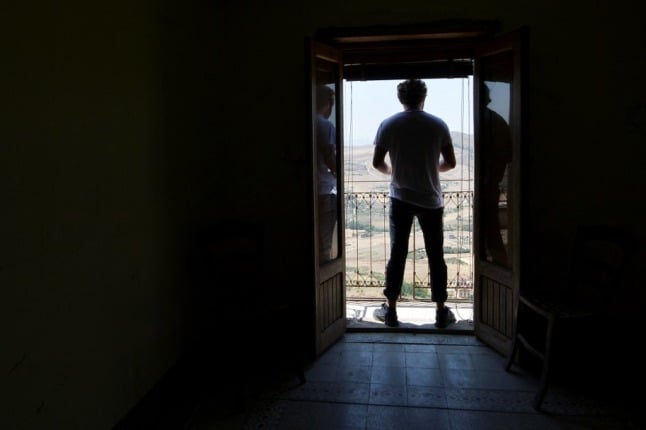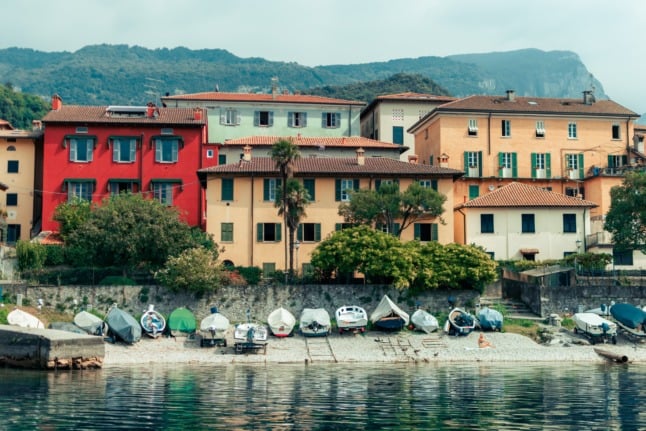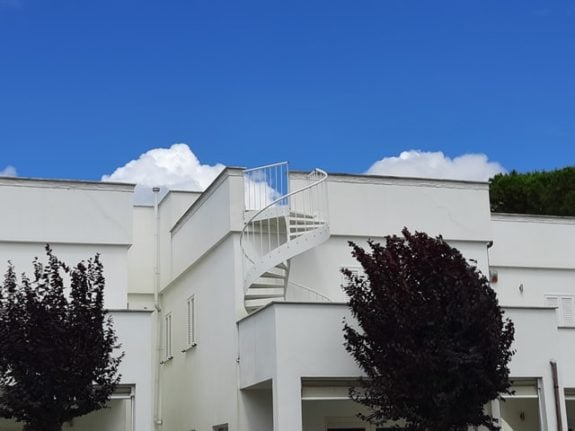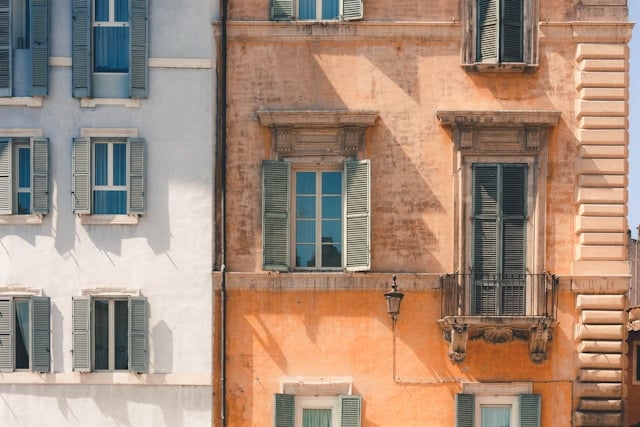Italy is famously full of abandoned homes on sale for a euro, and other unloved. rustic properties which may or may not be such a bargain once all is said and done.
But if you’re not in the market for a major renovation project in a remote area, the good news is that right now you’re likely to get a good deal no matter the property type or location you’re interested in.
READ ALSO: The real cost of buying a house in Italy as a foreigner
Costs could be relatively low even if you’re looking to purchase a modern home or a property in an area known for being expensive – such as in Italy’s major city centres, popular coastal areas, and other parts of the country favoured by the international market.
With record low interest rates on mortgages right now and property prices dropping back to pre-pandemic levels, chances are you could find a very reasonable deal in any part of the country.
Here’s a look at what buyers can expect at the moment.
Property prices falling again
For years, Italy has been the only European country where property prices overall were actually falling.
But even the sluggish Italian market wasn’t immune to the ‘pandemic effect’ as, like in many other countries, people scrambled to buy larger homes with gardens and office space as they re-evaluated priorities.
Last year this surge in buying and selling pushed up house prices in Italy overall (by +7 percent in the first quarter of 2020 compared to the end of 2019).
But data shows that the price increase hasn’t been sustained, and prices have since fallen – meaning the initial surge in interest in property purchases amid the pandemic didn’t reverse the long-term trend.
This is according to a study by mortgage website MutuiOnline.it, which found only a “brief initial recovery period” in early 2020, offset by a new decline in house prices in the second half of the year and in early 2021.

Of course this is an overall average and, just as before the coronavirus crisis, prices aren’t dropping in every market segment or in every part of the country.
The only parts of Italy still recording an increase in average prices per square metre in early 2021 were the island regions of Sicily and Sardinia, with +5 percent compared to 2020, the study found
Italy’s property market has long been weighed down by the large number of older, hard-to-sell properties around the country which often need extensive renovations and/or tend to be tangled in red tape, adding to the cost of buying significantly.
But categories such as new build homes and apartments in city centres continue to see price growth, while the international market (focused on second homes and investment properties in prestigious areas) has remained buoyant throughout the coronavirus crisis.
No matter where and what you want to buy however, there’s more positive news if you’ll be applying for a mortgage.
Lowest mortgage rates in a decade – and in Europe
Interest rates on mortgages for the purchase of the first home have been at their lowest for years in recent months.
Italian real estate experts stressed earlier this year that “now is the best time to buy a house”, with agency Selezione Immobiliare noting in May that “interest rates on mortgages for the purchase of the first home have been getting lower and lower in recent months and currently have fallen, for the first time in a long time, below 0.5 percent.”
This is due to a record drop in rates by the European Central Bank, according to newspaper La Stampa.
Interest rates have risen slightly since then, leading to speculation that inflation will mean current low interest rates won’t last much longer.
The average interest rate in Italy rose from 1.40 to 1.47 percent between July and August, according to the most recent figures from the Italian Banking Association (ABI).
However the ABI report notes that “interest rates on financing transactions remain at particularly low levels, at historic lows”.
For now, despite slight monthly fluctuations, lenders continue to offer some of the lowest interest rates seen in over a decade.

The average mortgage repayment in Italy has almost halved over the last 10 years – meaning people applying for a mortgage now will pay hundreds of euros less a month than they would have just a few years ago.
READ ALSO: Italy’s building bonus: Can you really claim back the cost of renovating property?
Data from Italian consumer rights association Codacons showed that a mortgage of 100,000 euros over a duration of 25 years for the purchase of a first home in Milan today comes with a fixed interest rate of around 0.98 percent, with monthly repayments costing 370 euros per month.
In September 2011, in fact, the fixed rate on the same loan was 4.25 percent, meaning a monthly payment of 542 euros.
Savings are even bigger at the moment on variable rates, Codacons noted.
Meanwhile, a joint study by price comparison websites Facile.it and Mutui.it found that Italy is the European nation with the lowest fixed mortgage rate – at 0.98 percent last month.
In Europe the second-lowest costs were found in Germany, at 1.18 percent.
Mortgages in Spain meanwhile attract a rate of 1.64 percent, and in Portugal the rate starts from 1.91 percent. The figure was recorded as 2.30 in Norway and 2.40 in the United Kingdom.
In Albania and Greece, borrowers find themselves paying considerably higher rates equal to 3.00 and 3.20 percent respectively, the report stated.
“Despite some significant differences, as in the case of Albania or Greece, rates in the eurozone remain fairly aligned with each other since all states use the same benchmarks,” stated Ivano Cresto, Managing Director of financing products at Facile.it.
“The changes in the rate on mortgages therefore are attributable to competitive dynamics between the credit institutions present in each country.”
“If on the other hand, we look at countries outside the EU, such as the US, where inflation has already started to rise, the rates are higher. If this should also increase in Europe, then we can expect a rise in rates throughout the continent, including Italy,” he said.
Help to buy for under-36s
The Italian goverment is currently offering to help young people (which it defines as those aged under 36) with the cost of buying a first home.
Financial help is available to those who have an ‘ISEE’ – a social-economic indicator of household income – of up to €40,000. There is no restriction on non-Italian citizens claiming.
If you fall into this category, you can benefit from a VAT cut and other exemptions on registration, mortgage and land registry tax, saving up to €9,000 on the costs of buying a first home. Find more details here.
See more in The Local’s Italian property section.



 Please whitelist us to continue reading.
Please whitelist us to continue reading.
I would be interested to know how anyone buys or sells any property in Italy?? I cannot get the most straightforward information from any agent in my area (Terni)
I have found that whether it be an enquiry about a house I am interested in or about selling my own property, they just do not seem interested!
We initially had that same frustration as well. But we happened upon Via dei Colli, a small real estate company in Umbria. Fabio and Stefano were fantastic and helped us every step of the way in buying a place near your area of Umbria. And they continued to help us through the renovation process and getting to know our new region. We highly recommend them. Good luck!
The headline on interest rates sounded exciting to us but so far I am being told by banks they will only extend mortages terms to age 70. So the payment on, in our case, a 5 year mortgage makes for a big monthly payment. I would love to hear about any financial institution that will provide 20 or 30 year term mortgages to home owners who are 65.